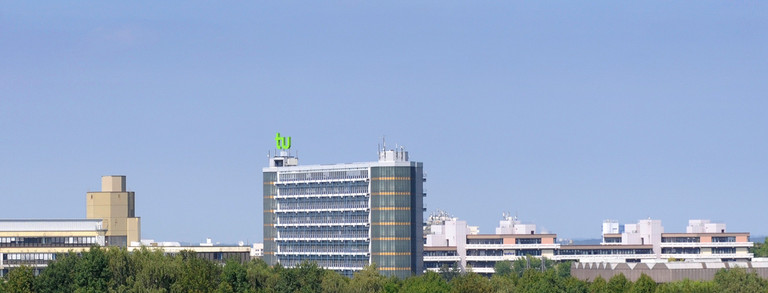2.8 Million Euros for Quantum Technology Research Projects
- Particle Physics
- Top News
- Research

Dr. Doris Reiter, who is conducting research on the theory of condensed matter at the Department of Physics together with her group, heads the MEEDGARD project. Together with eight partners from Germany, the UK, Austria and Poland, they are looking at a storage node for quantum networks. The goal is to store information in the nuclear spin of atoms in a quantum dot, a nanoscopic semiconductor structure. To be able to extract the stored information again, it has to be converted into light quanta, which are then distributed in various nodes of the network. Within the project, Dr. Doris Reiter’s group is responsible for delivering the theory of the light-matter interaction associated with this process.
Click here for the MEEDGARD project
Together with partners from Germany, Poland, Italy and the Czech Republic, Marc Aßmann, Professor of Solid State Physics, is participating in the QuCABOoSE project. The team wants to introduce a new way of thinking to the implementation of quantum technologies: Quantum states are very fragile and can be altered or even impaired through interactions with their environment. That is why they have so far mostly been isolated from the outside world – a very complex process. The group led by Professor Aßmann is now adopting a different perspective and looking at how the environment can be tailored in such a way that it does not affect the quantum states and can even assume useful functions. The goal of the project is to enhance the efficiency of quantum algorithms by utilizing these interactions between a quantum system and its environment.
Click here for the QuCABOoSE project
About QuantERA
Funded under Horizon 2020, QuantERA is a European research network for quantum sciences and technologies. Its aim is to strengthen European collaboration in this field and support cutting-edge research. The German Research Foundation (DFG), the Federal Ministry of Education and Research (BMBF) and VDI Technologiezentrum GmbH are the German partners in the QuantERA consortium.
Contact for queries:




![[Translate to English:] Partner Four hands are holding the green logo of TU Dortmund University](/storages/tu_website/_processed_/1/d/csm_Partner_Nicole_Rechmann_KW_670eba0154.jpg)




![[Translate to English:] Forschung An apparatus with tubes in a laboratory](/storages/tu_website/_processed_/0/c/csm_Forschung_Juergen_Huhn_4fa3153b51.jpg)
![[Translate to English:] Studium Five students are sitting in a lecture hall. They are talking to each other.](/storages/tu_website/_processed_/c/9/csm_Studium_FelixSchmale_dbdbfb0dd7.jpg)





